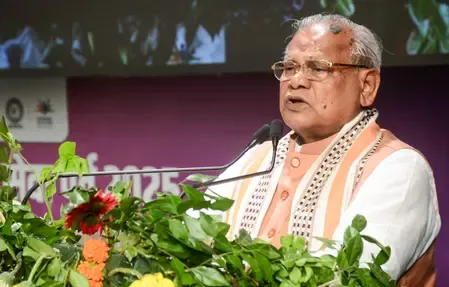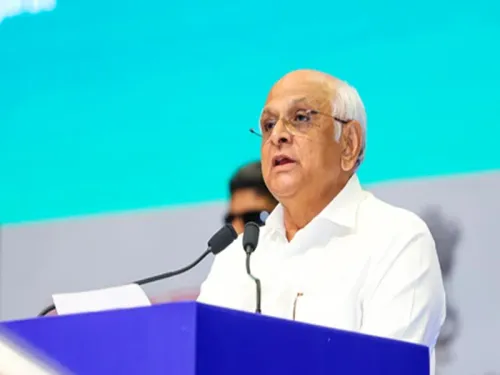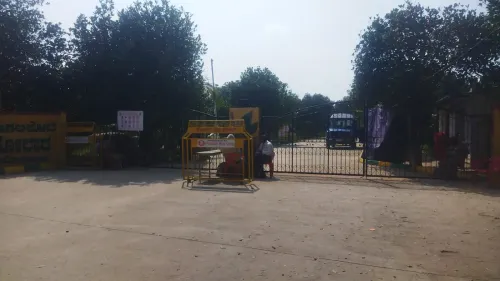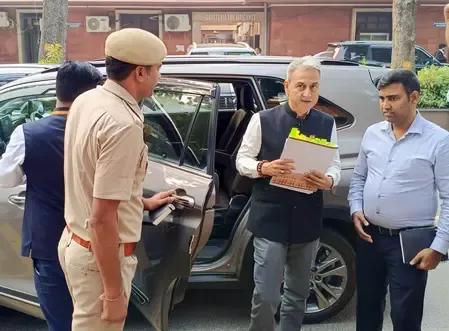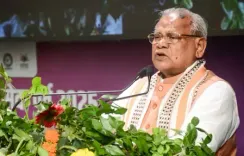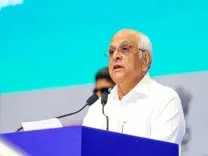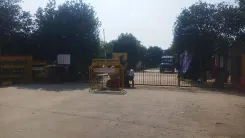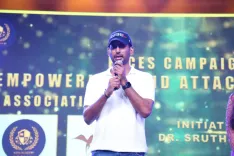Priyanka Gandhi, Anurag Thakur Among 31 Members of the JPC for 'One Nation, One Election'
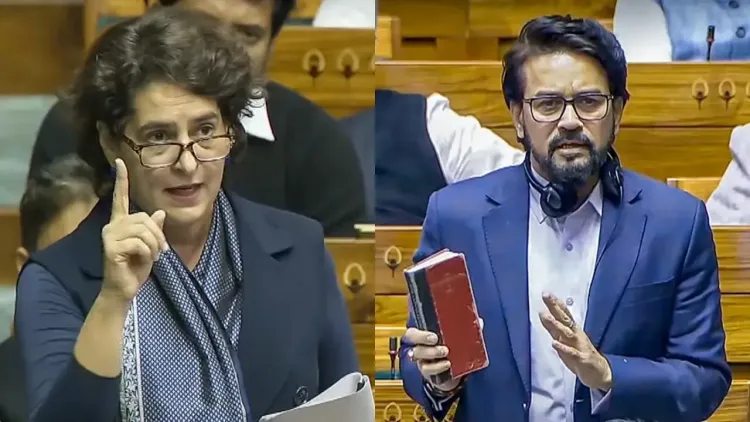
New Delhi, Dec 18 (NationPress) A Joint Parliamentary Committee (JPC) has been formed to analyze the suggested ‘One Nation, One Election’ legislation. This committee is made up of 31 members, including 21 from the Lok Sabha and 10 from the Rajya Sabha. The central aim is to investigate the viability and structure for executing simultaneous elections for both the Lok Sabha and state Assemblies.
The JPC will scrutinize the Constitution (One Hundred and Twenty-Ninth Amendment) Bill, 2024, alongside the Union Territories Laws (Amendment) Bill, 2024, both of which seek to synchronize elections at national and state levels.
These Bills were presented in the Lok Sabha by Law Minister Arjun Meghwal and have been referred to the committee for in-depth examination.
Additionally, the committee will assess proposals aimed at aligning elections in Union Territories such as Puducherry, Delhi, and Jammu and Kashmir with the Lok Sabha elections.
Included among the JPC members are Priyanka Gandhi Vadra (Congress), Anurag Thakur, and Anil Baluni (BJP), alongside other prominent opposition figures like Kalyan Banerjee (TMC) and Dharmendra Yadav (Samajwadi Party). The discussions and recommendations by this committee are crucial for influencing the future of India’s electoral framework.
The Constitution (129th Amendment) Bill was introduced in the Lok Sabha by Law Minister Arjun Meghwal after a debate lasting nearly 90 minutes. Following a vote, the Bill was approved with 269 MPs in favor and 198 against.
The Lok Sabha MPs in the committee include P.P. Chaudhary, C. M. Ramesh, Bansuri Swaraj, Parshottam Rupala, Anurag Singh Thakur, Vishnu Dayal Ram, Bhartruhari Mahtab, Sambit Patra, Anil Baluni, Vishnu Datt Sharma, Priyanka Gandhi Vadra, Manish Tewari, Sukhdeo Bhagat, Dharmendra Yadav, Kalyan Banerjee, T. M. Selvaganapathi, GM Harish Balayogi, Supriya Sule, Shrikant Shinde, Chandan Chauhan, and Balashowry Vallabhaneni.
While the government contends that conducting simultaneous elections would enhance governance and minimize expenses, opposition parties have raised alarms regarding its potential effects on the federal structure. The JPC is expected to play a significant role in addressing these issues and fostering agreement on this revolutionary electoral reform.
The committee is anticipated to deliver its report prior to the upcoming parliamentary session, paving the way for further dialogues on what is being regarded as one of the most transformative proposals in India's electoral landscape.

